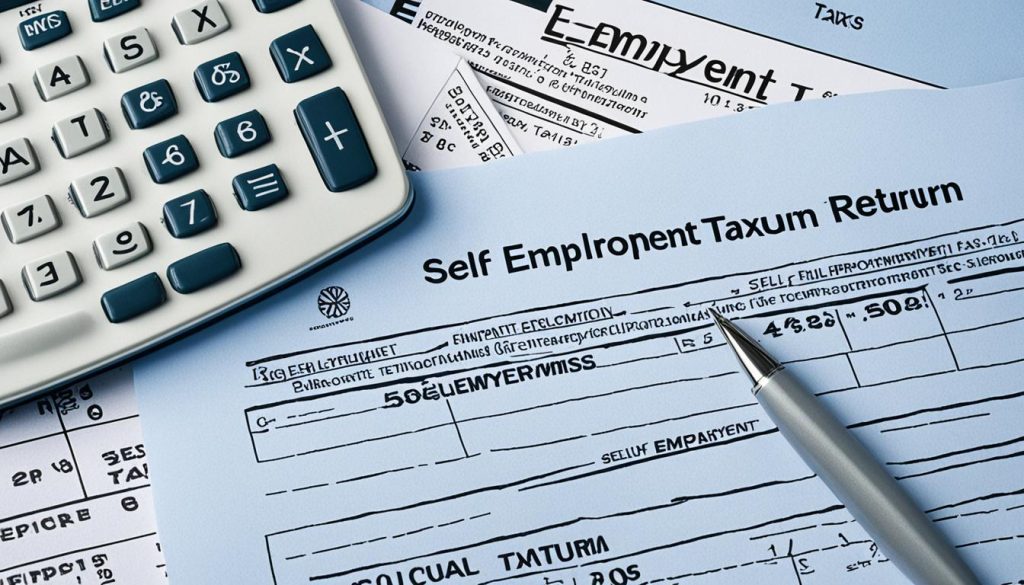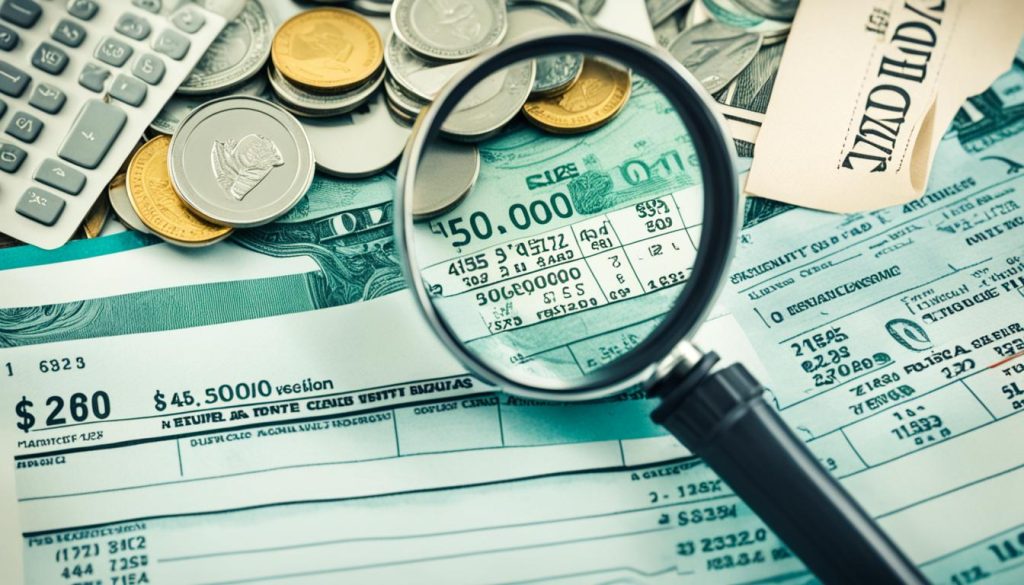When you’re self-employed, it’s important to understand how to claim self-employment on your taxes in order to maximize your deductions and take advantage of tax credits. You might be wondering: how do I claim self employment on taxes? Well, it’s not as complicated as it may seem. By following this guide, you can ensure that you are accurately reporting your self-employment income and expenses while minimizing your tax liability.
How to Claim Self Employment on Taxes?
Self Employment Tax Relief and Tips
As a self-employed individual, you have access to specific tax relief options that can help alleviate your tax burden. By taking advantage of these opportunities, you can optimize your tax situation and potentially reduce your overall tax liability. Some of the tax relief options available to self-employed individuals include:
- Office costs: You may be able to claim tax relief for the expenses associated with maintaining a dedicated workspace for your business.
- Travel costs: If you incur travel expenses while conducting business, such as mileage or public transportation fares, you may be eligible for tax relief.
- Training courses: Expenses related to professional development courses or training directly relevant to your business may be eligible for tax relief.
It’s important to keep detailed records of these expenses throughout the year and consult with HMRC or a tax professional to ensure that you are claiming all allowable deductions. By maximizing your tax relief opportunities, you can potentially lower your taxable income and reduce your tax burden.
In addition to tax relief options, here are some useful tax tips for self-employed individuals:
- Keep accurate records: Maintaining thorough and organized financial records is essential for ensuring that you claim all eligible deductions and accurately report your income.
- Pay your taxes on time: Meeting your tax obligations by filing your tax returns and paying your taxes on time can help you avoid penalties and interest charges.
- Consider the cash basis accounting method: If your business qualifies, using the cash basis accounting method can simplify your record-keeping by recognizing income and expenses when they are received or paid, rather than when they are earned or incurred.
By following these tax tips and taking advantage of available tax relief options, you can navigate the self-employment tax landscape with confidence and optimize your financial position.

Self Employment Tax Return and Filing Guidance
When it comes to filing your self-employment taxes, it’s important to follow the proper guidance to ensure compliance with HMRC’s regulations. By understanding the process and requirements, you can navigate the tax return filing smoothly and avoid potential penalties or errors.
To begin, it’s crucial to register as self-employed with HMRC within the specified timeframe. This registration is essential to establish your tax status and ensure that you meet your tax obligations. Failure to register on time may result in penalties, so it’s important to be mindful of the deadlines.
Once you are registered, self-employed individuals typically need to complete a self-assessment tax return each year. This tax return allows you to report your self-employment income and deductible expenses accurately. It’s essential to gather all relevant information, including income and expenditure details, to complete the tax return correctly.
Keeping detailed records throughout the year is key to making the filing process smoother. Proper record-keeping enables you to track your income and expenses accurately, helping you maximize your allowable deductions. By maintaining organized records, you can reduce the chances of missing any deductible expenses and the associated tax savings they may bring.
Online filing is the preferred method for submitting your self-employment tax return, as it provides a convenient and efficient way to file. HMRC offers a user-friendly online service that guides you step by step through the process. However, if online filing is not possible, you can opt for paper filing.
By following the filing guidance provided by HMRC and ensuring you accurately report your self-employment income and deductible expenses, you can meet your tax obligations as a self-employed individual. It’s always recommended to seek professional advice or consult HMRC directly if you have any questions or uncertainties during the filing process.
Filing Methods Comparison:
| Filing Method | Advantages | Disadvantages |
|---|---|---|
| Online Filing |
|
|
| Paper Filing |
|
|
When choosing your filing method, consider your access to the internet and your preference for convenience and speed. Online filing offers a streamlined process, while paper filing may be a suitable alternative for those who prefer physical documentation.

Understanding the process and requirements for filing your self-employment tax return is essential for self-employed individuals. By following the proper guidance, gathering the necessary information, and choosing the appropriate filing method, you can fulfill your tax obligations and ensure accurate reporting of your income and deductible expenses.
Self Employment Tax Deductions and Allowances
One key aspect of claiming self-employment on taxes is understanding the various tax deductions and allowances available to self-employed individuals. These deductions and allowances can help significantly reduce your overall tax liability and optimize your tax situation. The comprehensive list of allowable expenses provided by the sources allows you to deduct eligible costs to determine your taxable profit.
Here are some key tax deductions for self-employed individuals:
| Deduction | Description |
|---|---|
| Office costs | Expenses related to maintaining a dedicated workspace for your business, such as rent, utilities, and office supplies. |
| Travel costs | Transportation expenses incurred for business purposes, including fuel, parking fees, and public transportation fares. |
| Clothing expenses | Costs of purchasing and maintaining special clothing required for your business, such as uniforms or safety gear. |
| Staff costs | Wages, salaries, and other related expenses for employees or subcontractors working for your business. |
| Capital allowances | Allowances that allow you to claim tax relief on the costs of equipment, machinery, and business vehicles. |
In addition to these deductions, it’s important to be aware of the trading allowance. This allowance allows you to earn up to £1,000 tax-free without needing to report it as income. This can provide significant relief for small-scale self-employed individuals or those just starting out.
Maximizing your tax deductions and allowances
To ensure you make the most of the available deductions and allowances, it’s crucial to keep thorough records and maintain proper documentation of your business expenses. This includes keeping receipts, invoices, and any other relevant financial documents. By carefully tracking your expenses and consulting with a tax professional or utilizing HMRC resources, you can optimize your tax situation and minimize your tax liability.
Remember, tax laws and regulations may evolve, so it’s essential to stay informed about any updates or changes, and seek assistance when needed. By understanding the tax deductions and allowances applicable to your business, you can make informed financial decisions and ensure compliance with HMRC regulations.

HMRC Self Employment Guidance and Support
When it comes to self-employment, HMRC provides valuable resources and guidance tailored specifically for individuals like you. They understand the complexities of self-employment taxes and offer support to ensure you navigate the process effectively. One of the key resources available is the Self Assessment helpline. If you have any questions or uncertainties regarding allowable expenses, tax deductions, or any other aspect of self-employment taxes, you can reach out to the helpline for assistance.
In addition to the helpline, HMRC offers online tools that can be immensely helpful. The Self Assessment tool, for instance, allows you to determine whether you need to file a tax return and provides step-by-step guidance on how to do so. This tool simplifies the process and ensures that you fulfill your self-employment tax obligations accurately.
To access the guidance and support provided by HMRC, it is essential to utilize these available resources. Whether you have doubts about allowable expenses or require assistance with your self-employment tax return, seeking guidance from HMRC can provide the clarity and reassurance you need.
Remember, claiming self-employment on taxes is a crucial aspect of being self-employed, and staying informed is key. By taking advantage of HMRC’s guidance and support, you can navigate the complexities of self-employment taxes more confidently and ensure you meet your tax obligations effectively.

Conclusion
Claiming self-employment on taxes can be a complex process, but with the right guidance and understanding, you can navigate it more effectively. The sources provide valuable information on allowable expenses, tax relief options, filing guidance, deductions, and HMRC’s support resources. By following these guidelines and keeping accurate records, you can maximize your deductions, reduce your taxable profit, and ensure you meet your tax obligations as a self-employed individual in the United Kingdom.
It is recommended to consult with HMRC or a tax professional to optimize your tax situation and take advantage of all available benefits. Their expertise can help you identify additional deductions and credits specific to your business, ensuring you maximize your tax savings. Remember to keep track of your expenses throughout the year and organize your financial records in a systematic manner to simplify the tax filing process.
Understanding the intricacies of self-employment taxes is essential for ensuring compliance and minimizing your tax liability. Stay informed about changes in tax laws and regulations that may impact your business. By staying proactive and seeking professional advice when needed, you can navigate the self-employment tax landscape with confidence and secure your financial success.





